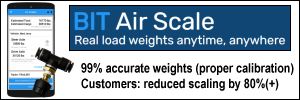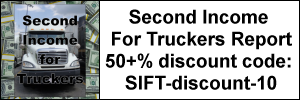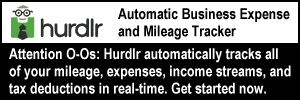In seeking to reduce air pollution, the California Air Resources Board [CARB] and other entities have put in place regulations regarding large trucks.
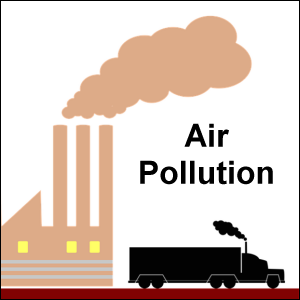 For example,
For example,
- the state of Pennsylvania has a “no idling” law (see photo of sign below);
- the Port of Oakland has adopted a strict truck ban to help achieve their “goal of reducing the health risk from diesel pollution from seaport sources”(1); and
- many other states and jurisdictions have implemented idling laws.
Since one of the trucking companies for which Mike drove had traffic lanes that didn’t extend to California — and it has been years since we teamed and drove to California — we wonder what kind of impact Oakland’s truck ban has had.
The Extent of the Issue
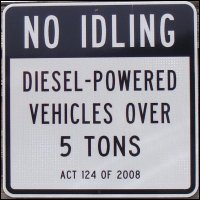 Research that we have found states: “Oakland’s cargo volume makes it the fifth busiest container port in the United States”.
Research that we have found states: “Oakland’s cargo volume makes it the fifth busiest container port in the United States”.
At the time that this page was first written, 1,500 trucks were idling for up to 15 hours a day in and near Oakland. That is a problem.
According to the an article formerly from the Pennsylvania Department of Environmental Protection(2)
- Trucks consume as much as one gallon of fuel per idling hour.
- Nationally, heavy-duty vehicles use over 1 billion gallons of fuel per year idling, spending almost $2.5 billion. This amounts to about 1 percent of all petroleum imported into the US.
- Idling produces about 140,000 tons of nitrogen oxides and 7.6 million tons of carbon dioxide annually.
No wonder CARB’s mission (at least used to be) is:
To promote and protect public health, welfare and ecological resources through the effective and efficient reduction of air pollutants while recognizing and considering the effects on the economy of the state.
We acknowledge that it is the right of local and state governments to work toward improving air quality for their areas.
arb.ca.gov/html/mission.htm (no longer online)
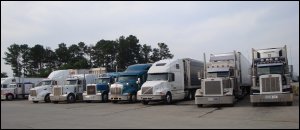 We further acknowledge that it is the right of truck drivers and trucking companies to be actively involved in the process of providing input whenever public hearings on proposed changes to laws, ordinances and regulations on air pollution are made.
We further acknowledge that it is the right of truck drivers and trucking companies to be actively involved in the process of providing input whenever public hearings on proposed changes to laws, ordinances and regulations on air pollution are made.
Recognizing these two rights, once the standard has been duly passed by the body so determining it, it is the place of truckers and trucking companies to either bring their equipment into compliance or step aside to allow those who do comply to supply the targeted transportation services.
Still, it is inhumane for trucking companies to expect professional truck drivers to stay in trucks that are either unbearably cold or hot.
We assume that since Oakland is a seaport, it sends and receives cargo. If we are accurate in our assumption that their ban regarding trailers involves only those that can cause air pollution — that is, refrigerated units — we wonder how refrigerated containers coming from outside the country can be made compliant.
What Will Compliance Cost?
Nevertheless, we wonder:
- How costly will it be to make large trucks and trailers comply?
- Can any costs be reduced or saved?
If you have been able to solve the problems associated with air pollution compliance but saved money in the process, we want to hear how you did it. Please contact us.
![]() Money saving tip: To save money regarding air pollution from large trucks and trailers:
Money saving tip: To save money regarding air pollution from large trucks and trailers:
- Know the laws, regulations and ordinances of each place that you will be serving, before attempting to provide service there;
- Do not drive or send non-compliant vehicles (tractors or trailers) into compliance zones;
- See if you can arrange to receive a discount on compliance work done in bulk on the entire fleet (if you require it);
- Regularly test your equipment to make sure it stays in compliance; and
- Make sure that all documentation regarding compliance is up-to-date and accompanies each unit or driver so that there are no delays in providing service.
Return from Air Pollution Regulations and Large Truck Compliance Costs? to our Tricks of the Trade page or our Truck Drivers Money Saving Tips home page.
Reference:
1. www.etrucker.com/apps/news/article.asp?id=82391 (no longer online)
2. www.dep.state.pa.us/dep/deputate/airwaste/aq/plans/plans/idling/IdlingSIPRevision07_31_09rev.doc (no longer online)

